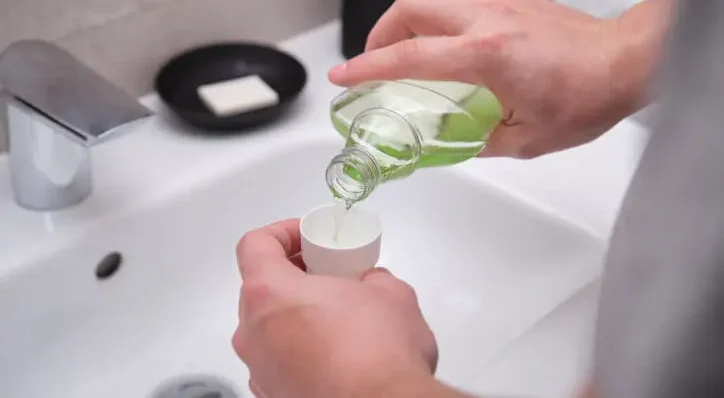Recent research has highlighted the potential benefits of using an antiseptic mouthwash to combat harmful bacteria in the mouths of individuals with type 2 diabetes.
This study, published in Scientific Reports, observed a decrease in periodontitis-related bacteria among participants with diabetes who gargled with the mouthwash, particularly Porphyromonas gingivalis, Treponema denticola, and Tannerella forsythia.
Moreover, some patients experienced improved blood sugar control alongside reduced bacterial presence, indicating promising clinical implications. Lead author Saaya Matayoshi emphasized the significance of targeting these virulent bacterial species associated with periodontitis.
Over the course of a year-long study involving 173 patients, researchers monitored bacterial levels in saliva and HbA1c levels as a marker for blood sugar control. Notably, while gargling with water showed no effect on bacteria or HbA1c levels, using the antiseptic mouthwash resulted in an overall reduction in bacterial species, especially with consistent twice-daily gargling.
Although there were no significant changes in overall HbA1c levels, individual responses varied, with younger patients exhibiting greater reductions in bacteria and improved blood sugar control compared to older patients.
This research underscores the potential of simple oral hygiene interventions to mitigate the risks associated with poor oral health, potentially benefiting individuals with periodontitis-linked diseases such as diabetes, dementia, cardiovascular disease, and respiratory tract infections. Identifying patients who may respond favorably to antiseptic mouthwash could further enhance its effectiveness in clinical practice.
The findings also highlight the importance of personalized medicine in oral health management. Tailoring treatment approaches based on individual patient characteristics, such as age and disease severity, could optimize outcomes and enhance the efficacy of interventions like antiseptic mouthwash.
Looking ahead, future studies could delve into the underlying mechanisms linking oral microbiota, systemic inflammation, and disease pathogenesis. By gaining a deeper understanding of these connections, researchers may uncover novel therapeutic targets for preventing and managing various health conditions associated with dysbiosis in the oral cavity.
Journal Reference:
- Saaya Matayoshi, Fumikazu Tojo, Yuto Suehiro, Makoto Okuda, Misato Takagi, Marin Ochiai, Maika Kadono, Yusuke Mikasa, Rena Okawa, Ryota Nomura, Yoshito Itoh, Naoto Itoh, Kazuhiko Nakano. Effects of mouthwash on periodontal pathogens and glycemic control in patients with type 2 diabetes mellitus. Scientific Reports, 2024; 14 (1) DOI: 10.1038/s41598-024-53213-x
You May Also Like:
No related posts.

